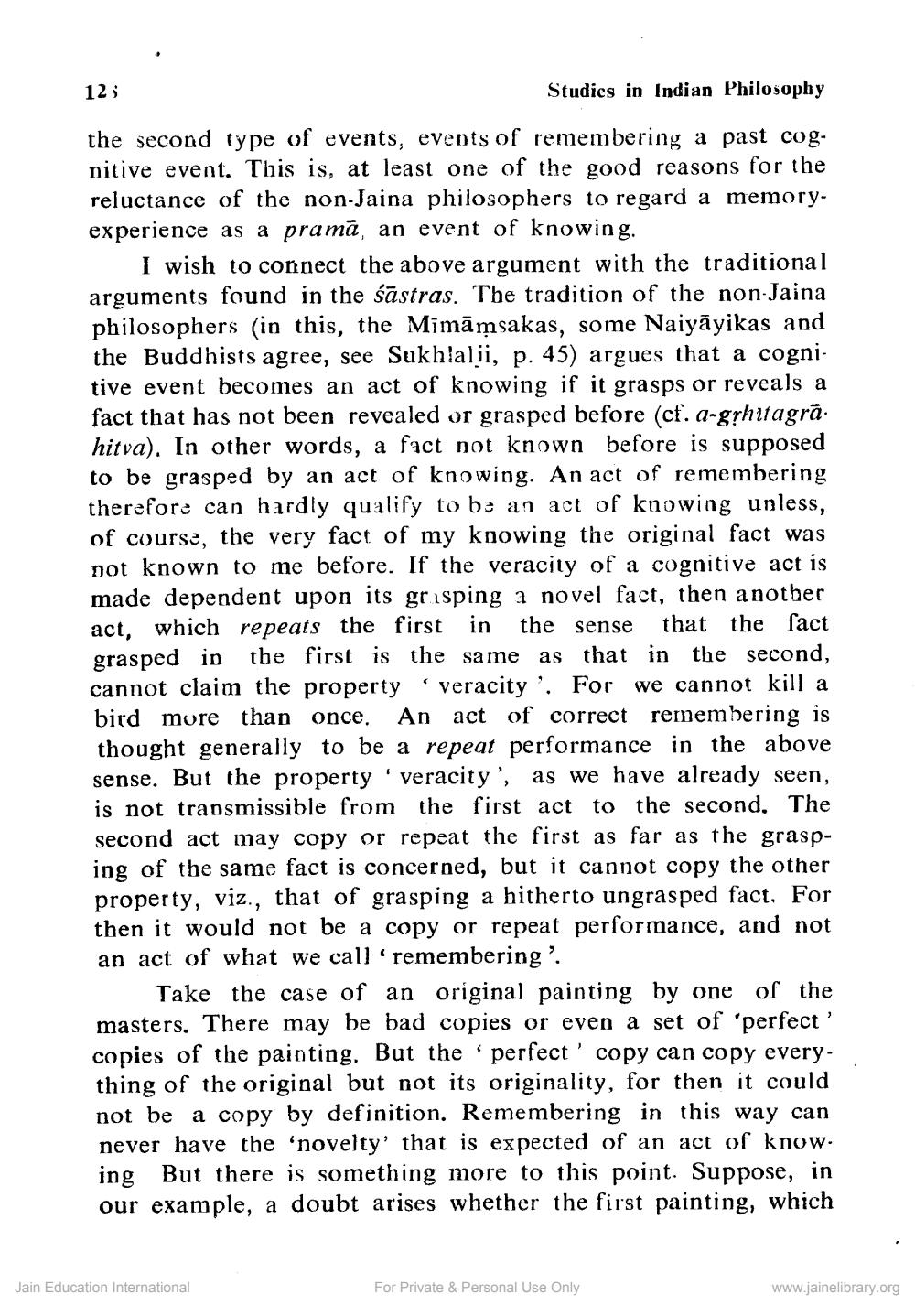________________
12;
Studies in Indian Philosophy
the second type of events, events of remembering a past cognitive event. This is, at least one of the good reasons for the reluctance of the non-Jaina philosophers to regard a memoryexperience as a pramā, an event of knowing.
I wish to connect the above argument with the traditional arguments found in the śāstras. The tradition of the non-Jaina philosophers (in this, the Mimāņsakas, some Naiyāyikas and the Buddhists agree, see Sukhlalji, p. 45) argues that a cognitive event becomes an act of knowing if it grasps or reveals a fact that has not been revealed or grasped before (cf. a-gļhitagrā. hitva). In other words, a fact not known before is supposed to be grasped by an act of knowing. An act of remembering therefore can hardly qualify to be an act of knowing unless, of course, the very fact of my knowing the original fact was not known to me before. If the veracity of a cognitive act is made dependent upon its grasping a novel fact, then another act, which repeats the first in the sense that the fact grasped in the first is the same as that in the second, cannot claim the property 'veracity'. For we cannot kill a bird more than once. An act of correct remembering is thought generally to be a repeat performance in the above sense. But the property 'veracity', as we have already seen, is not transmissible from the first act to the second. The second act may copy or repeat the first as far as the grasping of the same fact is concerned, but it cannot copy the other property, viz., that of grasping a hitherto ungrasped fact. For then it would not be a copy or repeat performance, and not an act of what we call remembering
Take the case of an original painting by one of the masters. There may be bad copies or even a set of 'perfect' copies of the painting. But the perfect' copy can copy everything of the original but not its originality, for then it could not be a copy by definition. Remembering in this way can never have the 'novelty' that is expected of an act of know. ing But there is something more to this point. Suppose, in our example, a doubt arises whether the first painting, which
Jain Education International
For Private & Personal Use Only
www.jainelibrary.org




